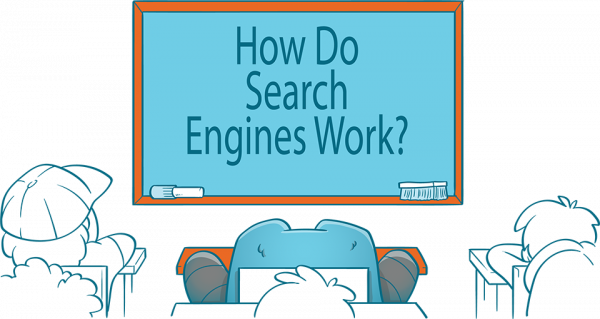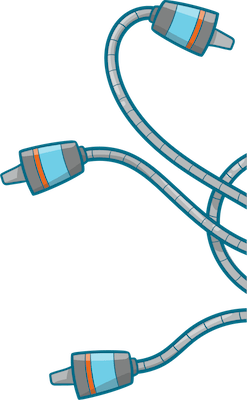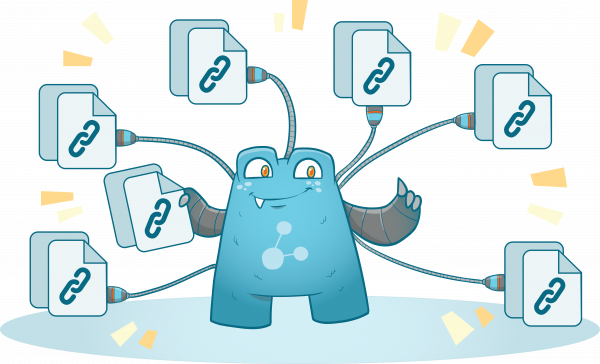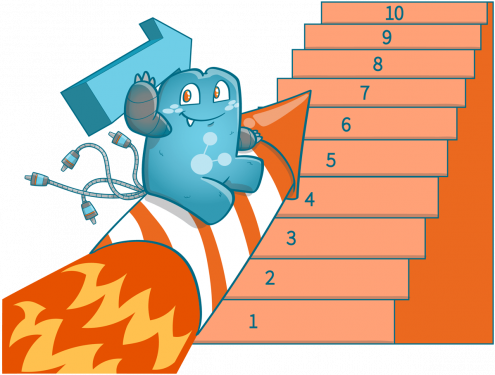How Do Search Engines Work?

After typing something on the search bar you’d probably get answers in just a couple of seconds or even milliseconds. At one point, you might have thought about how a search engine brings you the right answers to your questions.
Search engines are full of complex ideas, but in this article, we will oversimplify how it works and how you could use it to your advantage.
Everything You Need to Know About Search Engine

Every day, approximately 5.6 billion searches are recorded by search engines. That means that roughly 64,800 searches are made every second. Imagine the work that search engines must do to keep up with the queries sent to them. There are trillions of pages on the internet and search engines give you results in a matter of seconds.
Behind all of these results, a mechanism that search engines don’t give out exists. And, this mechanism is what marketers are trying to figure out in hopes of fully understanding it and using it to optimize their web pages and rank higher on search engine results pages (SERPs).
What are Search Engines?
A search engine is a program that identifies content (images, videos, web pages, etc.) that are related to the keywords or key phrases you type on the search bar. To ensure that the chances of your site appearing on SERPs when a keyword is typed is high, marketers use what they call search engine optimization (SEO).
Basic Mechanisms in Search Engines:
Web Crawlers
Crawlers, also known as spiders, are the bots that constantly search the web for new pages and content. Once they have found a page, they will collect all the information and index the pages.
When crawlers find a page, the only way they can transfer to other pages in your site and index them is through the internal links incorporated in the content or webpage.
Search Index
The search index is a record of all the web pages that have been indexed by spider bots. All these web pages are organized and segregated into classifications that allow a search engine to differentiate content in terms of keywords and page content. When search engines crawl your content, they can grade the quality of your content and rank it accordingly in their indexes.
Search Algorithms
Algorithms are the calculations used by search engines to determine the quality of a web page and its content. These algorithms also determine the relevance of a page to the keyword that the site owner has targeted. In addition, algorithms are used to determine the rank of a page based on its quality and popularity.
Importance of Search Engines
The primary purpose of search engines is to give users the most relevant, valuable results to users. If searchers are happy, then their ads will also keep rolling in. That is why most of the ranking factors that search engines use are based on what humans would look for in a website: page speed, the freshness of content, and the amount of value that the content will give the searcher.
Using Your Search Engine Knowledge to Your Advantage
To ensure that your website and web pages rank high on the search engine results page, you should aim to get an optimized page speed and high readability, and keyword density. This way, you can send positive signals to search engines telling them that your site is a ‘high-quality’ website and that it should rank better.
Aside from working on the technical stuff on your site, you should also allot effort in improving your site’s engagement metrics which include on-site time, bounce rates, and exit rates to give your rankings another boost.
What Happens During a Search?
Intent
When someone enters a query on a search engine, it will try to understand the intent behind the terms used. For example, when a person types in “pants”, the search engine will show a result that shows what pants look like or what they are made of, etc.
However, if you include the word “buy” into the query of “pants”, the search engine will probably pull up product pages of e-commerce sites since the word “buy” matches the intention of shopping.
Intent is Matched to Relevant Pages
Once the search engine sees what you want, it needs to look for pages that match what you’re looking for. Here are some factors that search engines use:
- Relevance of the content
- Content-type
- Quality of the content
- Quality and freshness of the site
- Popularity of the page
- Language of query
Location
Search engines also consider your location when giving you suggestions. If this type didn’t exist for search engines, it might suggest pages that aren’t really relevant to your situation.
For example, you live in the US and you searched for a nearby resort and Google gave suggestions that are located in Asia. The sites you’d see won’t really be valuable since they’re too far away.
Crawling, Indexing, and Ranking Content
Search engines may look simple from the outside, but what we don’t know is that every search we make requires heavy, quick processes just to give users a list of web pages that are relevant to the keyword or key phrases entered in the search bar.
Even before someone searches for something in a search engine, it has already done all the hard work to give you what you’re looking for. A search engine works all day to gather all the information from all the websites it can reach and organizes them accordingly.
Search engines do this so that when a search has been made, it will just look in its ‘library’ and pull out the most relevant pages that contain information you might be looking for.
These processes can be oversimplified into three steps: crawling web pages, indexing them, and then ranking them.
The Crawling Process
Search engines like Google rely heavily on web crawlers to find information all over the web. Normally, crawlers will start with a list of websites that have been specifically picked by search algorithms. This algorithm also dictates the number of pages and how often they are crawled.
Crawlers will visit every site on the list, and once they arrive on a page, they will follow all the internal and external pages in it. This is possible because of HREF and SRC tags. As time passes, crawlers can create a continuously expanding map of interconnected pages.
Site owners must take crawlers seriously since they’re the ones that allow your pages to show up on SERPs. If your site isn’t optimized to be accessible to crawlers it will be hard for them to index the pages on your site.
To ensure that crawlers will be able to collect all the valuable information on your site, here are the best practices you can do:
- Excellent Site Structure
Ensure that your site architecture is logical so that when people or crawlers move from the domain to categories, to subcategories, and so on, the experience would be smooth.
If the flow is smooth, then it would only take a little amount of time for crawlers to move around your site. A faster crawl means that the crawl budget for your site can be maximized.
- Incorporate Internal Links
Internal links are what connect all the pages on your site and crawlers need links to move across your site. Pages on your site that don’t have links cannot be crawled thus, they can be indexed.
- Create an XML Sitemap
Creating an XML sitemap helps crawlers since it acts as an instruction manual that tells them which pages to crawl and which to ignore.
Indexing Your Pages
When a bot finds a page, it renders it similar to how your browser does. This way, a bot sees what a visitor will see, including all the images, videos, and other content on your pages.
Once it has rendered your page, it will organize your content into categories, including CSS and HTML, keywords, images, etc. Organizing your content helps crawlers understand what your page is all about, and ultimately what your website can offer to web users.
Web pages need to be indexed because it is what allows search engines to associate keywords to them. That is why you should ensure that crawlers will be able to understand and organize your content so that it can show your pages to web users who are on search engines.
Determining Your Page’s Ranking
After crawling your site and indexing your pages, search engines will determine your page’s rankings. They use search algorithms to grade the quality of your content and how relevant it is to user queries.
There are different factors that algorithms use to define your pages which include page speed, optimized content, user experience (UX), etc. Most of the factors that search engines use are related to the popularity of your pieces.
Here is a list of the factors that search engines use to rank your page:
- Link quality
- Mobile-friendliness of your site
- Freshness of content
- Engagement
- Page loading speed
Search engines also use human Search Quality Raters to determine if the search algorithm is doing its job properly.
Your internal links help crawlers scour information on your pages. If you need a tool to manage internal links, then the Internal Link Juicer WordPress plugin is perfect for you!
Boost Results through This Knowledge
Knowing how search engines results can make your life easier, it would be easier to design crawlable and indexable pages. Increase the chances that your pages will show up on top of search engine results pages. So, when planning to start a website, you first need to understand how search engines work.
A well-crafted website won’t make sense if it doesn’t have a good internal linking profile. To help you in managing your internal links, grab Internal Link Juicer today!






